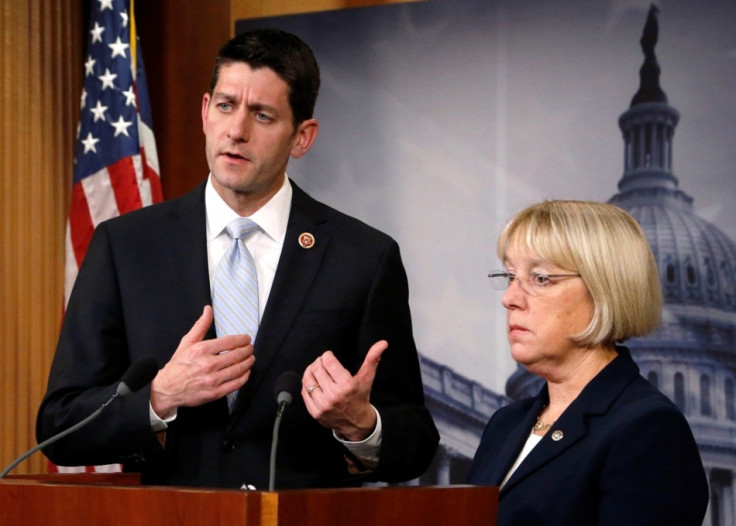US to Avert January Shutdown as Bi-Partisan Committee Reaches Deal on Budget

The US will avert another government shutdown as a cross-party Congressional budget committee agreed to fund the federal services for another two years.
The proposed deal would finance the government which was due to run out of cash on 15 January and reduce the federal deficit by $23bn (£14bn, €17bn).
House Budget Committee Chairman Paul Ryan and his Senate counterpart Patty Murray negotiated the deal in the wake of another government shutdown over federal spending.
"We have broken through the partisanship and gridlock," Murray said at a news conference.
"This agreement makes sure that we don't have a government shutdown scenario in January. It makes sure we don't have another government shutdown scenario in October. It makes sure that we don't lurch from crisis to crisis," Republican Congressman Ryan said.
The new deal "cuts spending in a smarter way," according to Ryan. Along with reducing deficit, the deal would relieve some of the automatic, forced spending cuts known as 'sequestration'.
"It's a good sign that Democrats and Republicans in Congress were able to come together and break the cycle of short-sighted, crisis-driven decision-making to get this done," President Barack Obama said in a statement.
The new deal does not increase taxes but it requires newly-hired federal employees to contribute more towards their pensions.
The proposal is now required to be approved by the House and Senate. The House is expected to vote on the proposal when it meets starting from 13 December.
Ryan said he was optimistic the new agreement would get approval from both sides of the Congress, despite attempts by Conservative groups to change Republicans' mind in their favour.
October Shutdown
The US government experienced a partial 16-day shutdown in October, and hundreds of thousands of federal employees were forced to go on unpaid leave after the Senate failed to pass the budget for 2014.
The shutdown ended on 17 October after a bipartisan committee agreed on a last-minute deal to reopen the federal government and raise the country's debt ceiling, which was later passed by the Senate and the House.
Ratings firm Standard & Poor's estimated that the partial federal closure had cost $24bn for the US economy and noted the problem would result in a significant reduction in fourth-quarter growth.
© Copyright IBTimes 2025. All rights reserved.






















